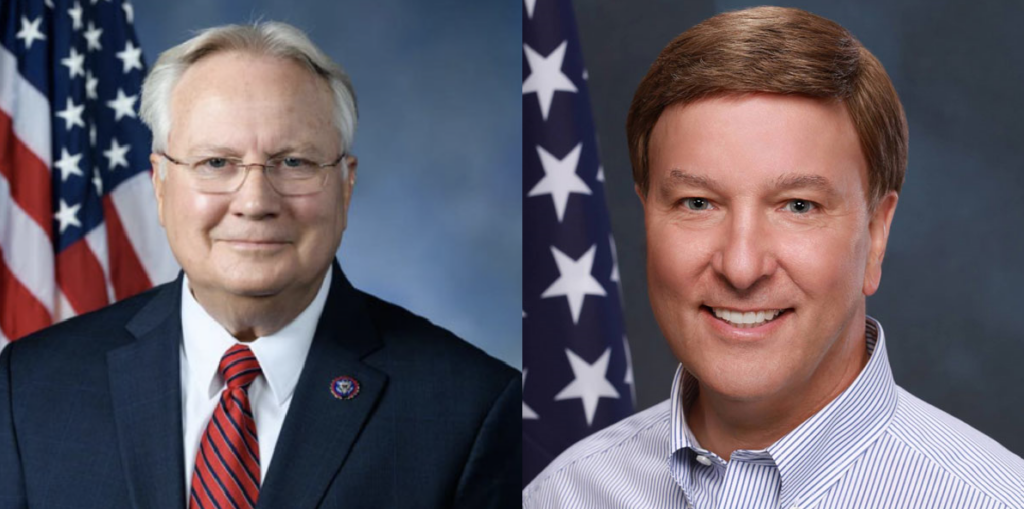U.S. Sen. Tommy Tuberville (R-AL), during Tuesday’s Senate Armed Services Committee hearing, pressed U.S. Army Gen. Mark Milley, chairman of the Joint Chiefs of Staff, along with other senior military leadership on the U.S. withdrawal from Afghanistan.
Alabama’s junior senator began his remarks by pointing to the United States’ abandonment of Bagram Airfield, which many see as a strategic mistake on behalf of the Biden administration.
“General Milley, you’ve spoken today a lot about civilian control of the military. I appreciate the statements you made about that today,” said Tuberville. “On June 10 though, I asked for formal questions for the record about Bagram Airfield, and I pointed out that having a major air base within 500 miles of both Iranian and Chinese borders would be strategically, very strategically invaluable.”
He added, “I asked you about the feasibility of retaining Bagram Airfield as a U.S. base. I’m still waiting for a reply. I hope you do see today ignoring questions that might come up from civilian oversight sometimes backfires on you a little bit. You apologize for being late for your statement today… but you just gotta understand the pattern here.”
Tuberville went on to state that Milley appears to be “dismissive” of Congress by failing to answer Afghanistan-related questions all while dedicating time to other media interviews.
“On August 18, you said, ‘There is nothing that I or anyone else saw that indicated the collapse of the army in this government in 11 days,’” said Tuberville. “I find it unbelievable with your staff of 3,200 people on a budget of 419 million taxpayer dollars, that we didn’t see the obvious. But I do think you saw it because July 11, 2019, you said, ‘I think pulling out prematurely would be a strategic mistake.’ You also said that here today, you agree?”
Milley contended that military leadership assessed the issue of Bagram Airfield “very, very carefully.”
“I 100% agree,” said Milley. “On the intel piece I stated what I said, nobody called it,” referring to the collapse of the Afghan government.
He added, “The Bagram thing, I did put a very lengthy response in my written statement. I don’t know if you’ve had an opportunity to read it yet, I encourage you to read it. It is also something that General McKenzie put in his. I can assure you that we looked at that whole Bagram issue very, very carefully.”
The senator then turned his line of questioning to commander of U.S. Central Command Gen. Kenneth McKenzie, asking the commander about the possibility of U.S. troops having to one day return to the war-torn country.
“Folks, we are going to pay for what we just did,” insisted Tuberville. “I mean, I got young kids, y’all got kids and grandkids, and we’re going to be back in there fighting. What do you think about the future of what we’ve got to do in Afghanistan?”
McKenzie responded, “So we have very few levers in Afghanistan right now because we’ve completely pulled out.”
Tuberville then asked, “Will we be back?”
The commander then maintained that the United States stands ready to reenter the Middle Eastern country should increased terrorist activity necessitate the U.S. Armed Forces to intervene.
“I think we’re always going to reserve the right to go in to go after ISIS and al Qaeda targets as they present themselves,” said McKenzie. “We’ve been very clear on that. And that’s not going to be easy. And we’ll talk a little bit more about that in the closed session. It will not be easy to do that. It will be possible to do that. I think, my judgment will be, they’re going to regress significantly in every sphere of activity in Afghanistan over the next few years with the Taliban in charge.”
Upon asking U.S. Department of Defense (DOD) Sec. Lloyd Austin if the U.S. military at a future date would need to return to Afghanistan, with Austin echoing McKenzie’s sentiments, Tuberville asked the DOD head if he supported dishonorable discharges for service members who refuse to receive the vaccine.
“You’re the leader of the DOD,” Tuberville stated.
“I am the leader,” responded Austin. “And again we have a [Uniform Code of Military Justice] that addresses all of the issues in the military and gives our leadership what they need to be able to enforce standards. Taking the vaccine is a requirement, and again, I’ll just leave it at that.”
Dylan Smith is a staff writer for Yellowhammer News. You can follow him on Twitter @DylanSmithAL













